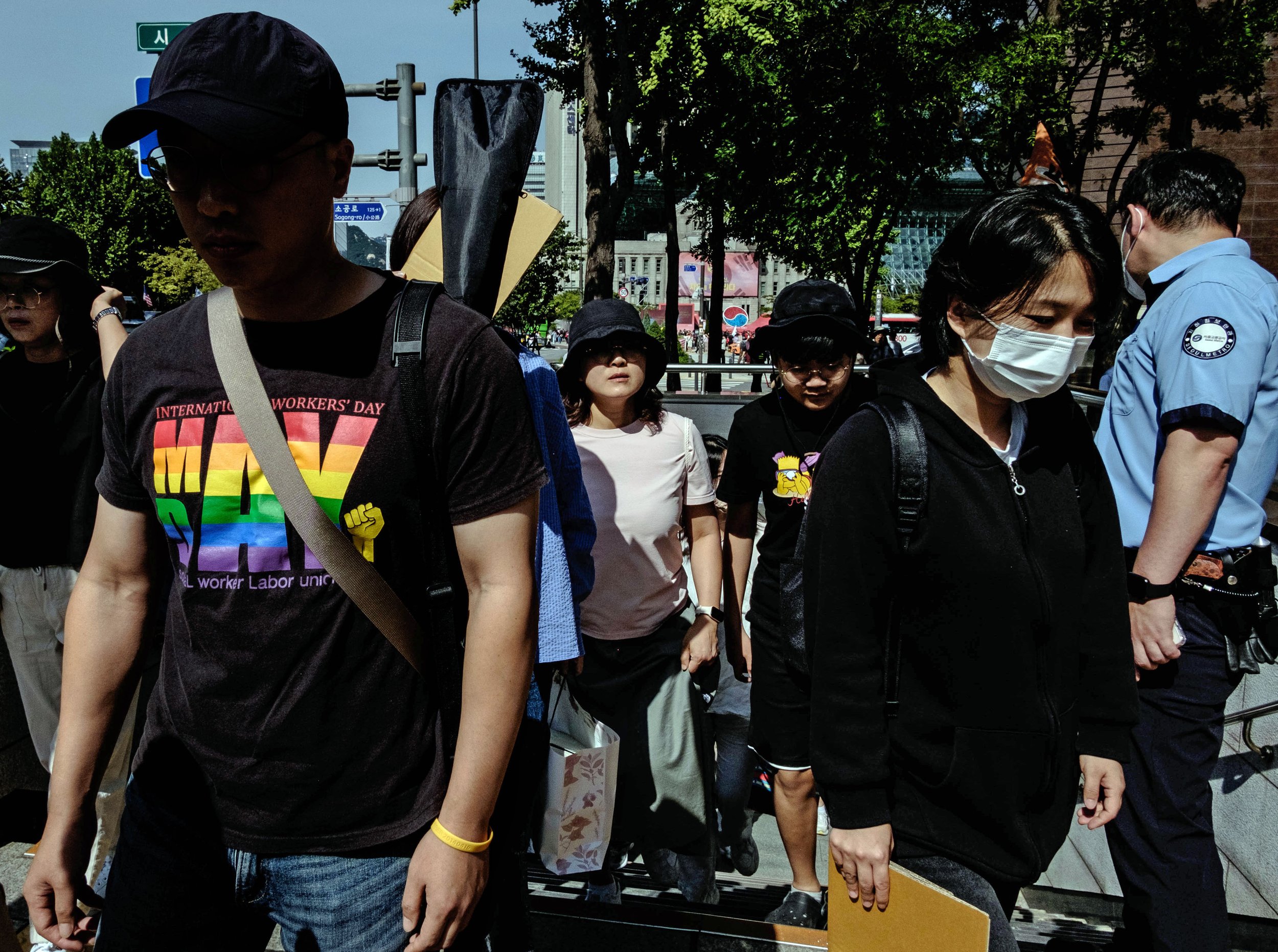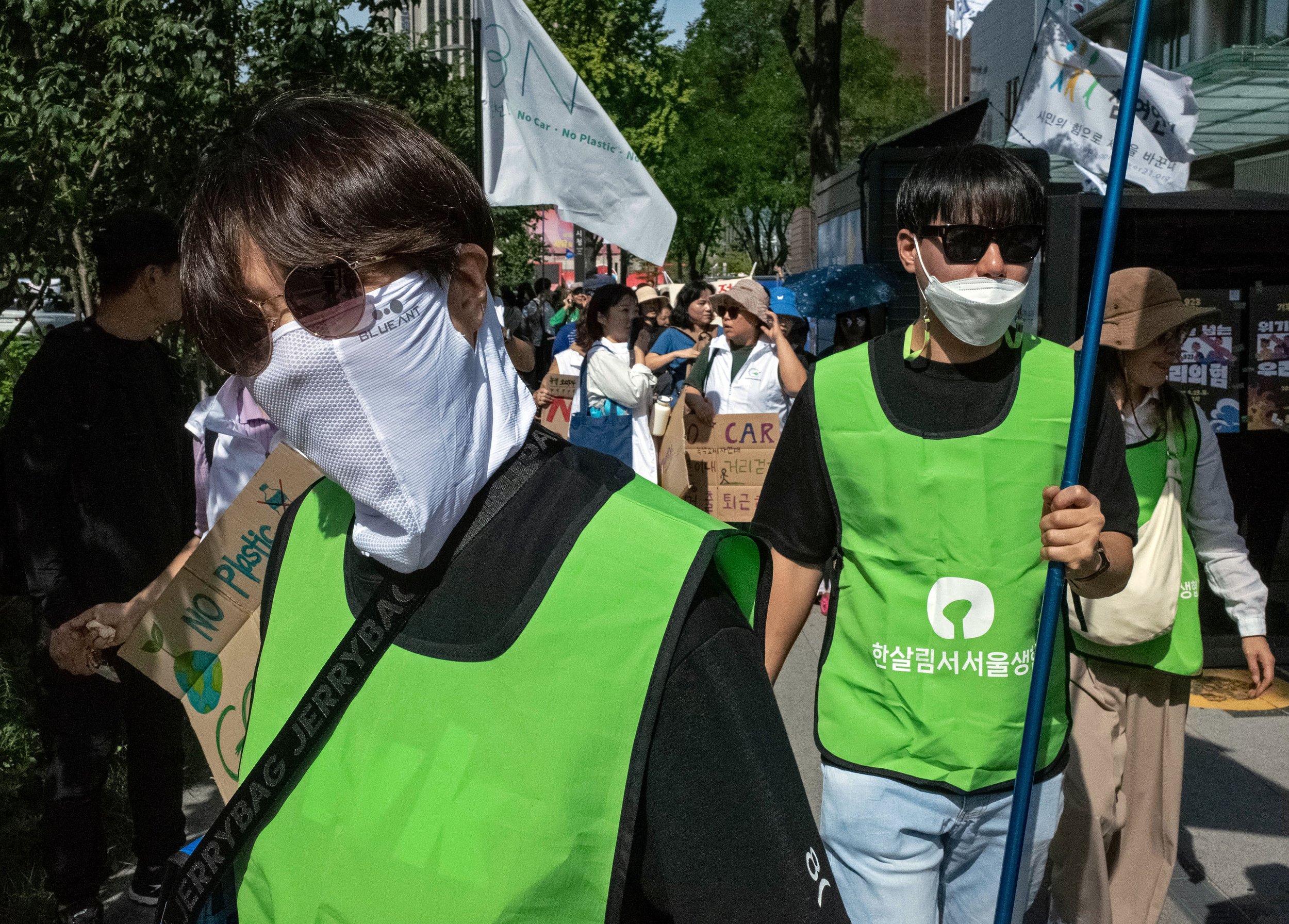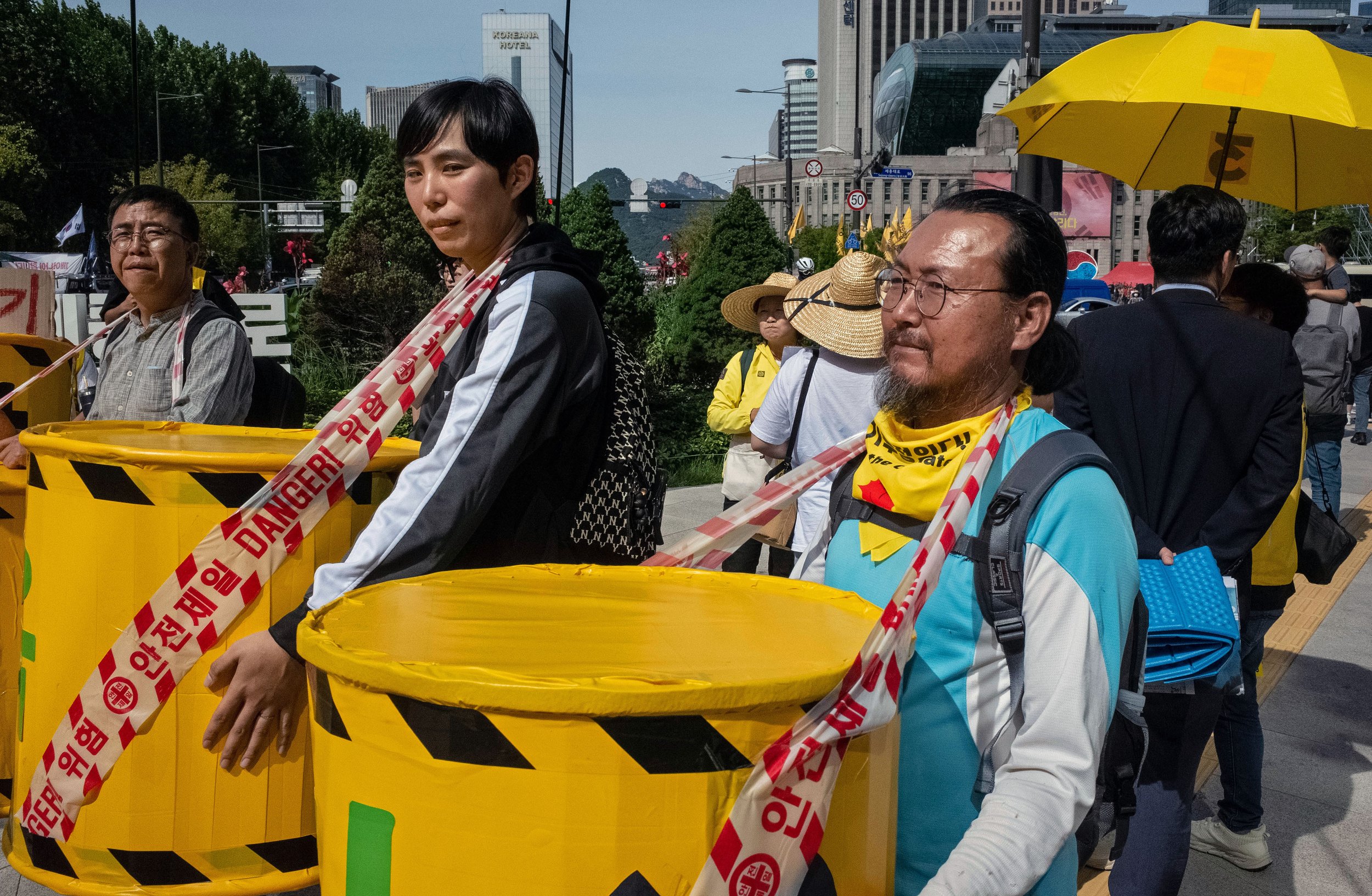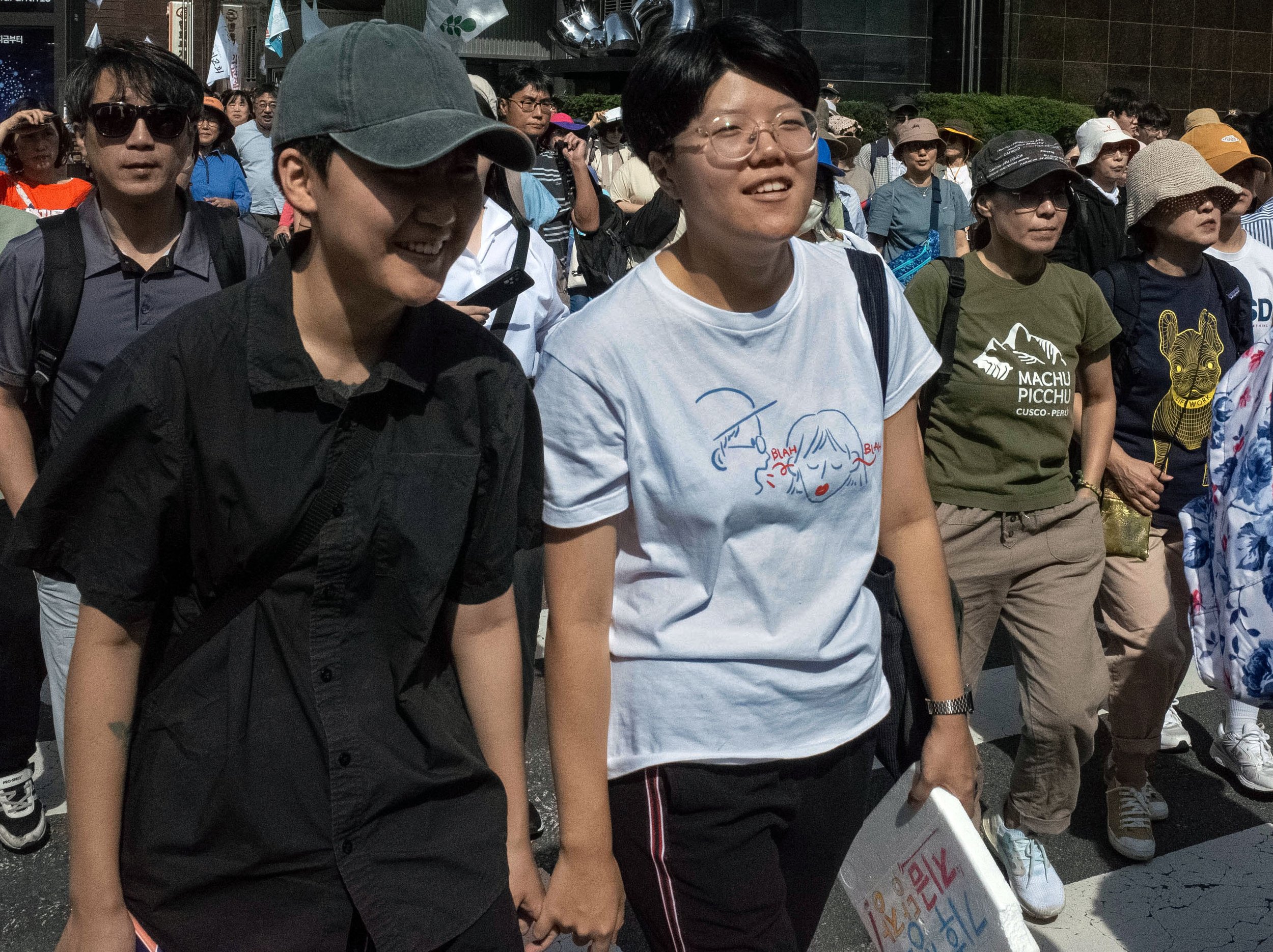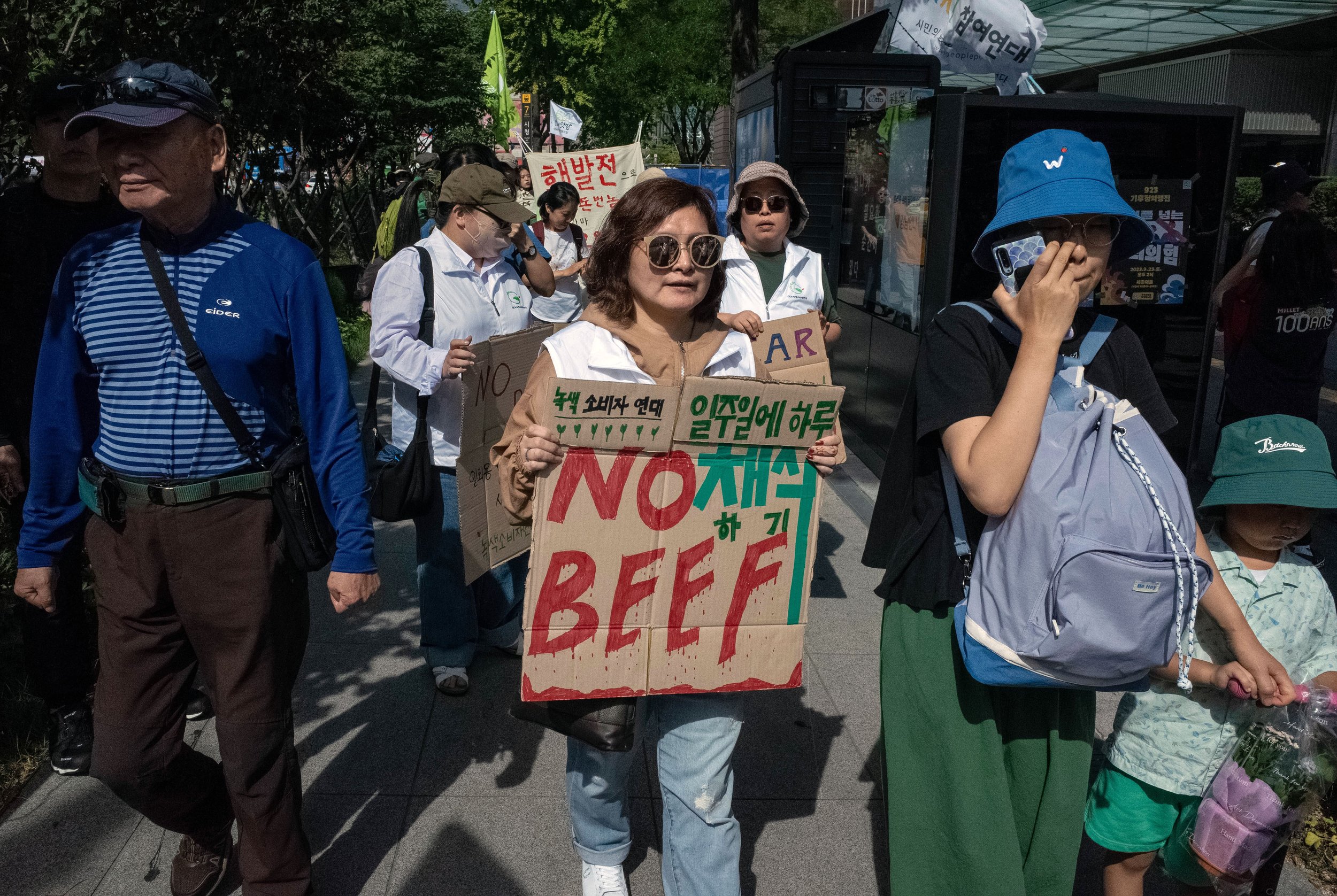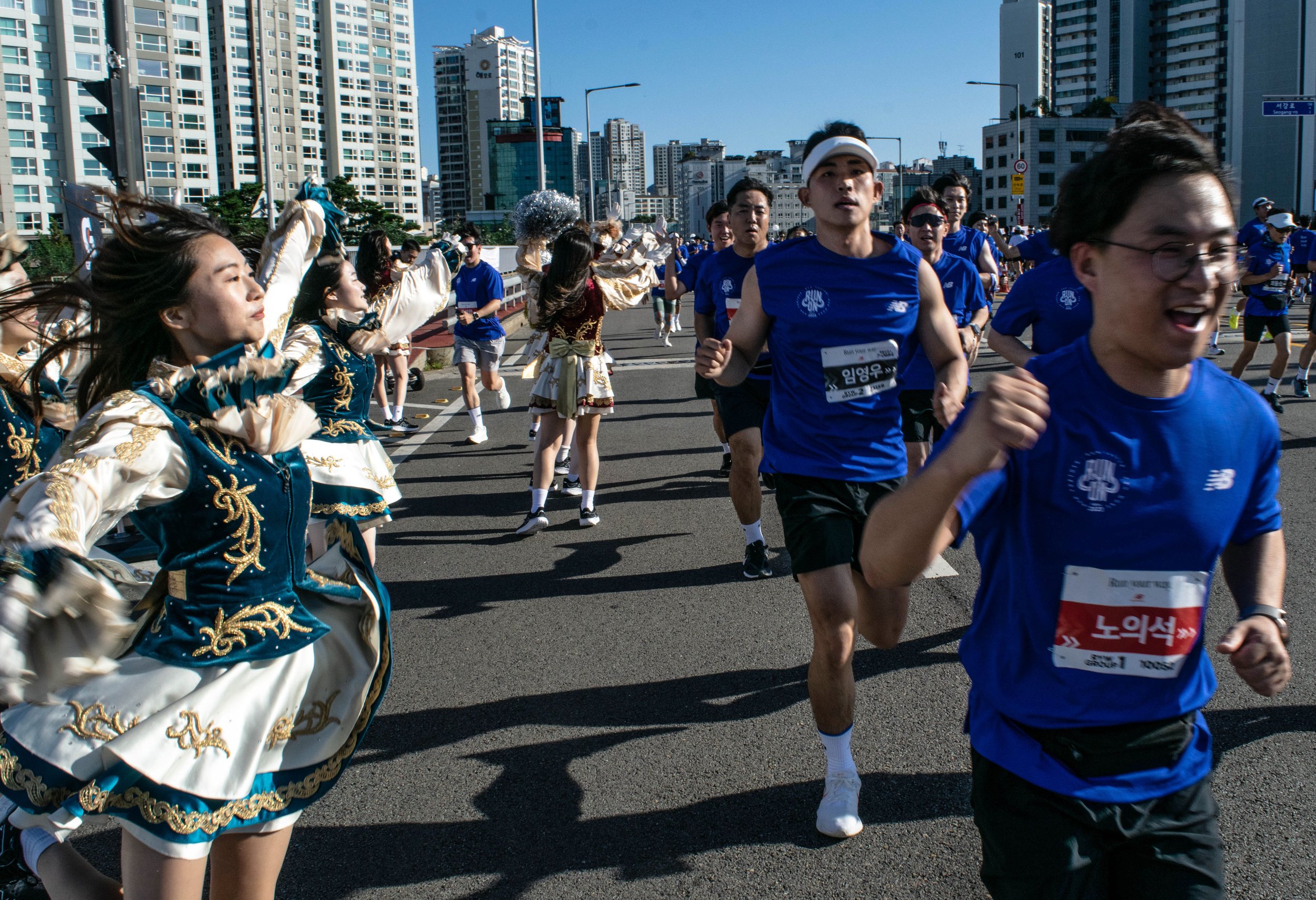Letter from Seoul -2
This night photo of the Seogang Bridge was taken about 10-years ago, when I lived on the 15th floor. Crazy days, but that apartment had a fabulous view.
My way of showing you where we live
The accompanying photograph is my way of showing you where we live. Our apartment complex appears in the upper-left hand corner. It is 4:30 a.m. Tuesday here in the Orient and a city of 10-million plus people never sleeps. As the Seojong Bridge spans the Han River and passes by the apartment complex, I can hear the traffic from our living room window - especially during the warm weather seasons and the window is open.
From the kitchen, the bridge begins to slope downward and becomes Seojong-ro and heads straight west to the Sinchon neighborhood.
It is not uncommon on a Saturday or Sunday for a flatbed truck to pass by with a loud speaker, either advocating some Pro-Communist sentiment, or Get Right with Jesus. Both viewpoints annoy me. The sound is more obvious from the kitchen window than from the living room.
The other day the noise was too loud to ignore, so I picked up a camera (or two) and headed out the door. I thought there must be some rally along the river, but it was really from the bridge. When you leave our apartment complex from the back gate, the majority of people step across the street to take the path to the river to either walk along the water, or to use the bicycle path, with the National Assembly on an island in the middle of the river. Yet within the past year, the city constructed an elevator that goes up to the bridge for people who want to walk over to Yeudo Island, where the National Assembly is located.
So, all I had to do was take the elevator up to the bridge and there was this mini- (very mini) marathon of runners. The bridge was blocked off for traffic … for perhaps an hour, maybe 90-minutes.
The day before was perfect weather and I knew something would be happening along Sejong-daero, the heart-and-soul of the city, from Gwanghwamun Square-to-Namdaemun, with City Hall and Deoksu Palace at midpoint.
We walked to the neighborhood subway station and Sookyung left at Sinchon to pursue her quest for fresh vegetables at her favorite market, and I went on to Euljiro, the subway stop that is the easiest to get out of for access to City Hall. The City Hall subway station is vast, and it’s possible to walk underground for 20-minutes or so.
On Saturday, there was a military ceremony at Seoul Plaza - which is to say in front of City Hall, and there was also a gathering of people of all ages advocating for tougher environmental policies.
As always, none of this is covered in the media.
On a political level:
- Japan has been releasing “treated water” from the nuclear reactor meltdown of 2011 into the Pacific Ocean. This has Korea on edge and, not surprisingly, the Japanese fish
export market has gone flat;
- there is the new BFF arrangement involving international pariahs Putin and Kim Jong-un;
- Korean teachers have been protesting for better wages and better working conditions;
- the opposition leader of Moon Jae-in’s Communist friendly appeasement party just ended a 30-day hunger strike.
Most people want a life of dignity with decent neighbors who share the same values. That’s not a tall order, unless the people in the neighborhood include North Korea, China, Russia and Japan.
Over the past few weeks in this part of the Orient …
#1. Last week China flew 103 warplanes through Taiwan airspace in a show of strength. The centennial of the People’s Liberation Army (PLA) is 18-months away, and Xi Jinping wants to bring Taiwan to heel.
#2. Two weeks ago, North Korean leader Kim Jong-un traveled by special armored train to Vladivostok to meet with war criminal Vladimir Putin, the Butcher of Ukraine. Nothing says Bromance like an exchange of bullet-proof vests and drones between political pariahs. Ten days ago, the U. S. approved a $5-billion sale to South Korea of F-35s, top-of-the-line fighter-jets with stealth capacity, as tensions soar with North Korea.
#3. A month ago, Japan started releasing treated radioactive water from the wrecked Fukushima nuclear power plant into the Pacific Ocean. The Japanese nuclear power plant was destroyed by a tsunami in 2011. The U.N. nuclear watchdog gave the green light last month to Japan’s plans to discharge three Olympic-size swimming pools of treated radioactive water into the Pacific Ocean. Yet the U.N. has zero credibility.
China has issued a ban on all Japanese aquatic products. South Korea always keeps Japan at arm’s length because of the rotten history of the two countries in the first half of the 20th century. Yet China, Japan and Korea all rely on a shared area of the Pacific Ocean for fish and seaweed. Over the past few years, China has dispatched “factory ships” off the coasts of Ecuador and Peru for fish, while remaining in international waters.
Just for perspective, here are the length of flight times between Seoul and its immediate neighbors.
Seoul-to-Beijing: two hours and five minutes;
Seoul-to-Shanghai: two hours;
Seoul-to-Tokyo: two hours and 35-minutes;
Seoul-to- Vladivostok: three hours and 20-minutes.
* * *
Following the collapse of the nearly 750-year Joseon Dynasty in 1910, when the Japanese quickly invaded the country, occupied it fully and then annexed Korea, the Republic of Korea (ROK) was formally established on August 15, 1948. And then there was the three-year Civil War (1950-1953) that never achieved a peace treaty. This is considered the longest Armistice in world history.
To say South Korea is a fledgling democratic-republic is understatement. In 1980, sixth-floor apartment buildings were considered a measure of progress, yet since so few people could afford cars, the idea of underground parking garages seemed far-fetched.
Now the Hyundai car is considered a world-class vehicle. While headquartered in Seoul, the Hyundai company maintains the world’s largest car manufacturing plant in Ulsan on the southeast coast near Busan.
Life in Seoul has changed since 1980, and according to building data research company Emporis, the country's capital has the most high-rise buildings in the world - both apartments and offices with 16,359.
Emporis defines a high-rise as a building at least 35m, or 12 stories-tall. In second place is Moscow, Russia, with 12,317 high-rises, followed by Hong Kong in third place, with 7,913.
The Lotte World Tower is 1,819 ft. high with123-floors, and the world’s fifth tallest building.
If you’re curious about the Top-Ten tallest buildings in the world, here is the breakdown:
#1. Burj Khalifa, at 2,717 ft. with163-floors in Dubai;
#2. Shanghai Tower, at 2,07 ft. with 128-floors in Shanghai;
#3. Makkah Royal Clock Tower, at 1,972 ft. with120-floors in Mecca;
#4. Ping An Finance Center, at 1,965 ft. with 115-floors in Shenzhen, China;
#5. Lotte World Tower, at 1,819 ft. with 123-floors in Seoul;
#6. One World Trade Center, at 1,776 ft. with 94-floors in New York City;
#7. Guangzhou CTF Finance Centre, at 1,739 ft. with 111-floors in Guangzhou, China;
#8. Tianjin CTF Finance Centre, at 1,739 ft. with 97-floors in Tianjin, China;
#9. CITIC Tower, at 1,731 ft. with 109-floors in Beijing;
#10. Taipei 101, at 1,614 ft. with 101-floors in Taipei.
Sometimes known as “The Miracle on The Han,” Seoul has emerged from the tumultuous 20th-century as a world-class city that offers a thriving culture to include first-rate cinema and TV programs, the K-Pop music phenomena, fashion trends, 16 universities, some of the best food in the world, professional baseball teams, one of the world’s best international airports, definitely the best subway system in the world and some of the most gorgeous women on the planet.
The health care system is perhaps the best in the Orient, and a national policy provides fair coverage for everyone - without the system corrupted by pharmaceutical companies who are nothing but greed junkies exploiting the masses.
As a fledgling democratic-republic, especially with ruthless totalitarian neighbors like North Korea, China and Russia, Korea is not simply a work-in-progress, it is often an example of building an airplane in flight. There are many issues openly addressed in both the media and on the streets with organized gatherings, rallies, demonstrations.
Some of these issues include labor conditions and fair pay for teachers and delivery drivers alike, disproportionate wealth, inflation and the effect on property acquisition, the rise in real estate values, food and energy costs, and environmental concerns with the undeniable climate crisis affecting everyone. In other words, the usual concerns of any civilized country in this world.
Koreans can be very vocal, if not passionate, about their views of politics and social issues. Yet, as a group and as individuals, they have a sense of decorum and consideration, the hallmark of a civilized people. I have been a witness to these public affairs as a one-time professional photojournalist - now a hobby I pursue without selling out as a wage-slave. There has never been any violence - a few harsh words, perhaps, but the importance of the group, of being one people, is supreme.
The police are always a presence at these gatherings, rallies and demonstrations, which are never spontaneous. Parade permits are necessary - or nothing is going to happen.
The police in Korea do not carry guns. There are no gun shops in Korea. There are no mass shootings. School students are not used for target practice in their classrooms by a deranged lone actor.
In Korea, military service of 18-to-21 months is compulsory for physically fit men aged between 18-and-35, though there have been rare exemptions.
Yet even with all the national tax revenue generated by K-Pop group BTS, there is still military duty to fulfill. The group is no more.
If the military has met its quota of manpower, then those fulfilling compulsory duty obligations are frequently assigned to the city police in an auxiliary capacity. Sometimes at rallies it appears that the grandsons are chaperoning their grandparents.
There are laws against taking photos of people in public without their permission. Luck of the Irish has been with me, and I have not had any problems. It seems silly to cop an attitude about being photographed in public without permission when we have all been put under surveillance without permission by CCTV cameras. This is for our protection, of course.
Orwell got it right in 1984: Freedom is slavery.
In the Christian world, God is omnipotent and knows where we are at all times, starting with Adam and Eve in The Garden of Eden. Even Santa Claus knows when we’ve been naughty and when we’ve been nice - if you are a gullible five-year-old with parents who peddle that twisted rubbish. Maybe the CCTV camera is proof that God is dead, and technology can crank up the fear factor so we walk the straight and narrow path of good behavior.
Perhaps God is still the cleverest totalitarian in the universe and owns all the stock in CCTV companies. If so, too bad for Elon Musk.
Regardless, the police at rallies in Seoul have always treated me with complete respect. In fact, I photograph them - sometimes quite close with a 24mm lens. No problem.
As a new democracy, Korea certainly looks to the U.S. as a template. The relationship Korea has with America is unique. The U.S. military helped end the 35-year Japanese Occupation of Korea in 1945, and put an end to the horrors of that period - especially the Comfort Women. This sickening euphemism was coined by the Japanese for the enslavement of Korean women who were forced to be sexual slaves of the Imperial Army. A prostitute gets paid for sexual services rendered. A slave under every circumstance is the worst degradation a human can experience.
And then the U.S., under the auspices of the UN returned in 1950 to keep the entire peninsula from becoming a forced labor camp of the Kim family in Pyongyang. General Douglas MacArthur, the American Caesar in the Pacific, likely would have reduced Pyongyang to rubble and then turned his troops toward Peking - as Beijing was once called. Yet that hat salesman from Independence, Missouri fired MacArthur.
This is an odd time for Korea to look to America for inspiration and guidance, when the center in my country has broken. Lincoln knew a house divided cannot stand.
Where have you gone angel headed hipsters of America?
Freedom loving nations turn hopeful eyes to you.
Woo, woo, woo
What's that you say, Lady Liberty? A certified sexual predator
for President haunts the capital, and you have left and gone away.
Hey, hey, hey
Hey, hey, hey.
This past Saturday in Seoul, there was a large gathering of people along Sejong-daero, advocating for more serious environmental policies to address the climate crisis we have brought upon ourselves. The Han River is so polluted that swimming is prohibited.
Sejong-daero represents the heart of the city and stretches from Gwanghwamun Square-to-Namdaemun Market, with both Deoksu Palace and City Hall at mid-point. Naturally, Saturday is when people gravitate to this area to spend time with each other, to discuss the issues of the day, and to affirm the need to connect with others and work to make the common ideals they cherish a lasting reality.
The next morning, from my high-rise apartment on the seventh-floor of a 25-floor building, I heard music in the distance that evoked a celebratory atmosphere. It was not a holiday. For Koreans, Chuseok is Thursday, September 28 - Saturday, September 30, and this long standing traditional holiday is a big deal.
In some ways Chuseok is similar to the American Thanksgiving - yet it is genuinely about family, and not about falling asleep in front of the TV watching obscenely paid athletes on steroids run around an obscenely expensive stadium that attempts to replicate a rural setting in the middle of a huge urban city.
Chuseok is about family and the generations all under one roof briefly to share food, to share conversation, to share values.
Yet when I followed the sounds I heard from my window this past Sunday, what I discovered was the Seogang Bridge blocked off to traffic as a mini-marathon … very mini took place with people of all ages, though much younger than me. Seogang Bridge spans the Han River and links the Mapo and Yeouido Districts.
Yeouido is actually a large island in the Han River, and this is where Korea’s National Assembly is located. I really have a splendid view of the city from my windows.
Since the Modern Olympics revived the marathon tradition in 1896, the Boston Marathon has become the largest endurance race in the world.
The Seoul Marathon is ranked #2 in the world, and the next one will be March 17, 2024.
Sunday morning the weather was perfect, and people were engaged with life, running as affirmation that it’s just damn good to be alive.
In that bygone era of grade school, when a collection of students was together in the same room with the same teacher for an academic year, my sixth-grade teacher bought us all a smart looking paperback copy of Roget’s Thesaurus. If he had handed me a bag of gold, it would not have been as valuable as that 50-cent thesaurus. It changed my life.
For high school graduation, my mother presented me with a portable manual typewriter and a hardbound copy of Roget’s Thesaurus. I’ve had a half-century relationship with that edition – longer than my connection with any one person, and it has accompanied me from St. Louis-to-Seoul, and all points in between. That edition from 1970 remains an integral part of my book collection.
Allegedly, Christopher Hitchens (1949-2011), an immensely talented wit and writer, could imbibe liberal quantities of alcoholic refreshments throughout the day, hold forth with ease and intellectual dexterity on literary, political and religious issues at both formal lectures and lively parties - then sit before a keyboard at 1 a.m. and produce a stunning essay for Vanity Fair that marked him as the rightful heir to Gore Vidal in his prime.
I’m still waiting for lightning to strike, to know what I want to be when I grow up, to be enraptured by a muse who will inspire me as much as June Mansfield (1902-1979) shaped the life of Henry Miller (1891-1980), her husband, who went unaccompanied to Paris in 1930 and during this down-and-out period wrote countless letters to his wife and friends in New York City that became the material for the scandalous Tropic of Cancer – banned as obscene for 30-years, edited by his mistress and benefactor, Anais Nin (1903-1977). Perhaps the best we can do is to be an interesting collection of contradictions.
Call me Kennedy. Ahab had his whale. William Burroughs (1914-1997) had his heroin. Bruce Chatwin (1940-1989) had his Patagonia. As for me, I have a camera and a passport.
The play’s the thing.
Michael Kennedy








